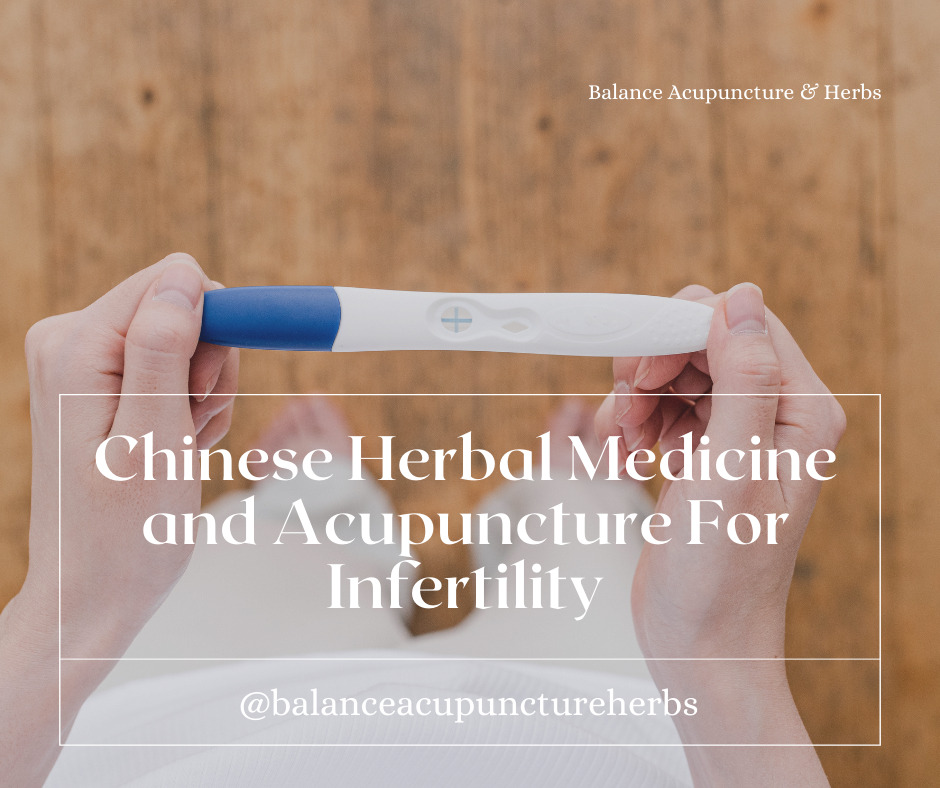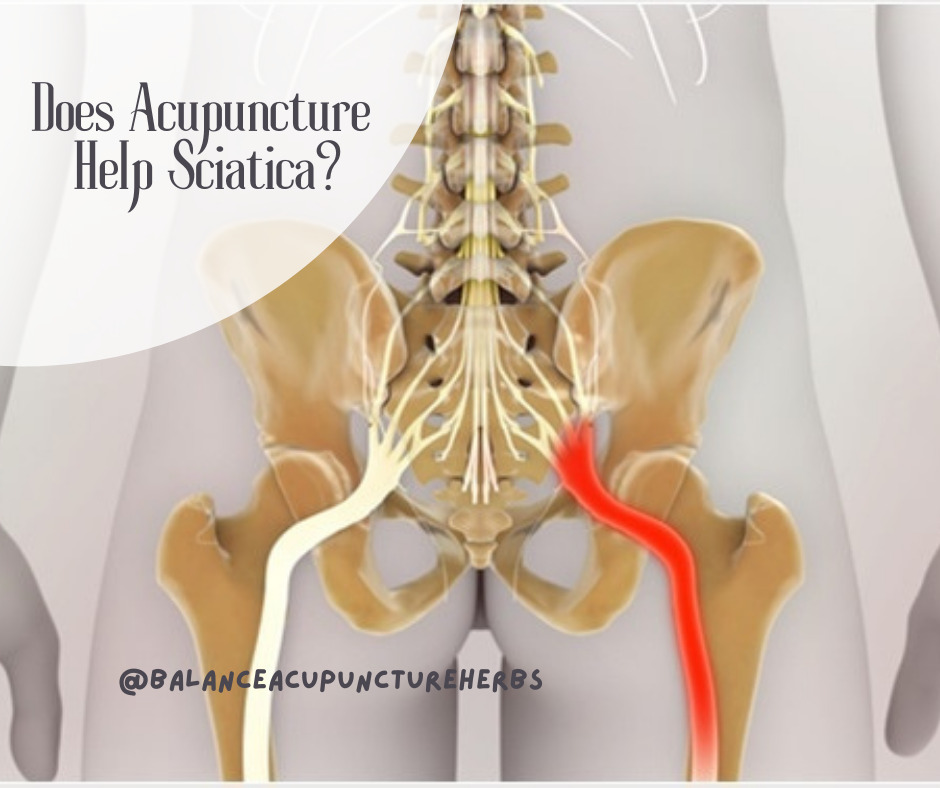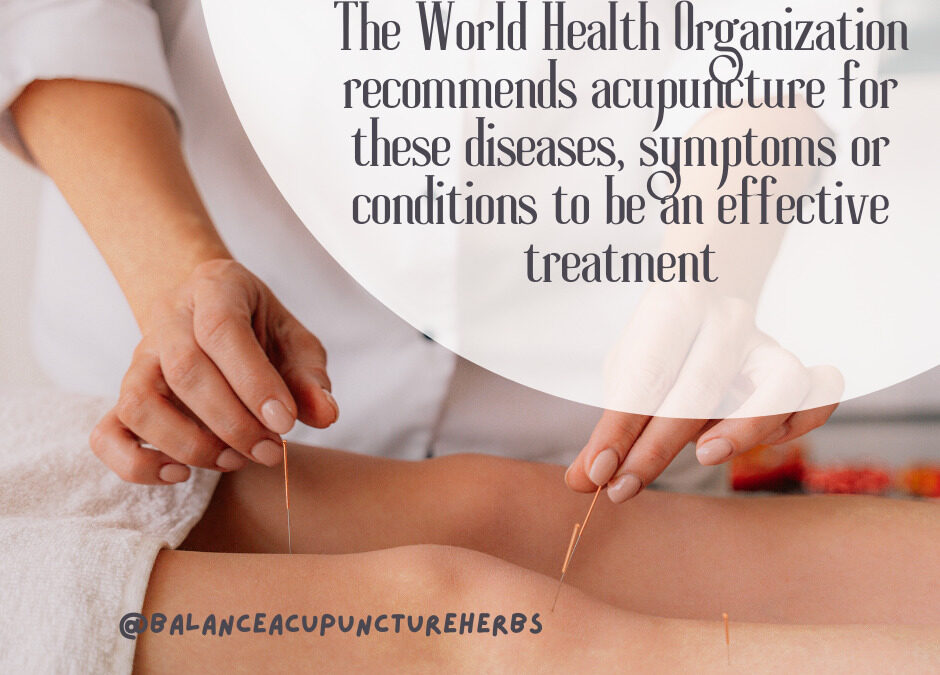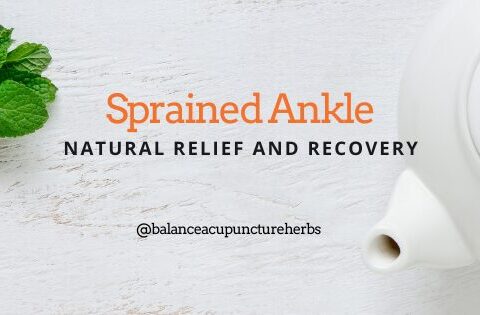
Chinese Herbal Medicine and Acupuncture For Infertility
March 15, 2022
Does Acupuncture Help Sciatica?
April 10, 2022|
Getting your Trinity Audio player ready...
|
The World Health Organization recommends acupuncture for these diseases, symptoms or conditions as an effective treatment
The World Health Organization recommends acupuncture for these diseases, symptoms or conditions, because acupuncture has been “proven” through controlled trials – to be an effective treatment’:
- Adverse reactions to radiotherapy and/or chemotherapy
- Allergic rhinitis (including hay fever)
- Biliary colic
- Depression (including depressive neurosis and depression following stroke)
- Dysentery, acute bacillary
- Dysmenorrhoea, primary
- Epigastralgia, acute (in peptic ulcer, acute and chronic gastritis, and gastrospasm)
- Facial pain (including craniomandibular disorders)
- Headache
- Hypertension, essential
- Hypotension, primary
- Induction of labour
- Knee pain
- Leukopenia
- Low back pain
- Malposition of fetus, correction of
- Morning sickness
- Nausea and vomiting
- Neck pain
- Pain in dentistry (including dental pain and temporomandibular dysfunction)
- Periarthritis of shoulder
- Postoperative pain
- Renal colic
- Rheumatoid arthritis
- Sciatica
- Sprain
- Stroke
- Tennis elbow
Diseases, symptoms or conditions for which The World Health Organization recommends acupuncture because its therapeutic effect has been shown, although further proof is needed:
- Abdominal pain (in acute gastroenteritis or due to gastrointestinal spasm)
- Acne vulgaris
- Alcohol dependence and detoxification
- Bell’s palsy
- Bronchial asthma
- Cancer pain
- Cardiac neurosis
- Cholecystitis, chronic, with acute exacerbation
- Cholelithiasis
- Competition stress syndrome
- Craniocerebral injury, closed
- Diabetes mellitus, non-insulin-dependent
- Earache
- Epidemic hemorrhagic fever
- Epistaxis, simple (without generalized or local disease)
- Eye pain due to subconjunctival injection
- Female infertility
- Facial spasm
- Female urethral syndrome
- Fibromyalgia and fasciitis
- Gastrokinetic disturbance
- Gouty arthritis
- Hepatitis B virus carrier status
- Herpes zoster (human (alpha) herpes virus 3)
- Hyperlipaemia
- Hypo-ovarianism
- Insomnia
- Labour pain
- Lactation, deficiency
- Male sexual dysfunction, non-organic
- Ménière disease
- Neuralgia, post-herpetic
- Neurodermatitis
- Obesity
- Opium, cocaine and heroin dependence
- Osteoarthritis
- Pain due to endoscopic examination
- Pain in thromboangiitis obliterans
- Polycystic ovary syndrome (Stein–Leventhal syndrome)
- Postextubation in children
- Postoperative convalescence
- Premenstrual syndrome
- Prostatitis, chronic
- Pruritus
- Radicular and pseudoradicular pain syndrome
- Raynaud syndrome, primary
- Recurrent lower urinary-tract infection
- Reflex sympathetic dystrophy
- Retention of urine, traumatic
- Schizophrenia
- Sialism, drug-induced
- Sjögren syndrome
- Sore throat (including tonsillitis)
- Spine pain, acute
- Stiff neck
- Temporomandibular joint dysfunction
- Tietze syndrome
- Tobacco dependence
- Tourette syndrome
- Ulcerative colitis, chronic
- Urolithiasis
- Vascular dementia
- Whooping cough (pertussis)
The report also contains three other very important lists of conditions:
- Diseases, symptoms or conditions for which there are only individual controlled trials reporting some therapeutic effects, but for which Acupuncture is worth trying because treatment by conventional and other therapies is difficult.
- Diseases, symptoms or conditions for which Acupuncture may be tried provided the practitioner has special modern medical knowledge and adequate monitoring equipment.
Read More:
How Often Should You Have Acupuncture
Does Acupuncture Help Sciatica?
Acupuncture and Herbal Medicine for Chloasma
Chronic Fatigue Syndrome-Could You Have ME/CFS?
SOURCE: Acupuncture: Review and Analysis of Reports on Controlled Clinical Trials, World Health Organization, 2003




